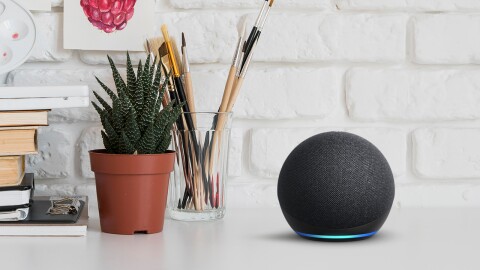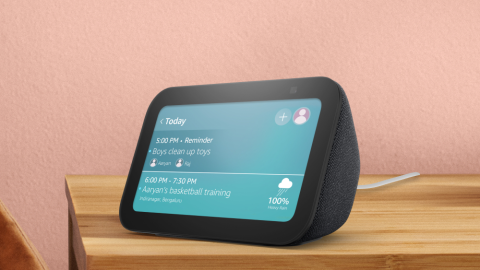Today technology is disrupting virtually every industry across the world, making it extremely clear that more jobs will require Science, Technology, Engineering and Maths (STEM) skills. With practical and implied learning initiatives making a massive impact on the global education industry, STEM education can be considered as one of the modern day learning tools that can bring fruitful results to every growing organisation globally. But what about women in technology? Women have been historically underrepresented across industries that drive technology. Have we broken the barriers of women being included in the area of development? At Amazon we have and how! Read on.
Technology and Women? Bring it on!
Amazon is known to set high ambition for greater diversity and inclusion in the workplace. As Amazon builds newer technologies to simplify everyday lives of people, the organisation also offers women an incredible opportunity to develop and change the way they are perceived in STEM industries.
The faces behind building a device such as Alexa have proven that women bring in their unique experiences, voices and perspectives to make a significant impact in the way we look at technology. Be it Indu Prasad, the Managing Editor for Alexa or Dipa Balakrishnan, a Senior Manager for Alexa Experience and Engagement or even Snehal Meshram who manages the Alexa Natural Language Understanding - all these women are pushing boundaries each day, fighting their odds to develop this indispensable voice assisted service called Alexa.
Women who are voice-enabling the world - sneak peek into their minds
As we talk about the minds of women building Alexa in India, here is a sneak-peek into what they think about technology and what they feel about being a part of building this revolutionary voice interface that is indeed making a significant impact on everyday human lives.
Speaking about how technology and women are now coming together, Ramya Poosarla, Software Development Engineer for Alexa, Amazon India says, “Traditionally a lot of women do not explore a career in STEM due to a variety of reasons. The trend has been changing over a few decades now.” She adds that, “To any girl/woman looking to take up STEM course or any other stream of interest, in a situation of self-doubt I would suggest they draw inspiration from life of leaders like Grace Hopper, Indira Nooyi, Sudha Murthy, scientists such as Ritu Karidhal (Chandrayan director) who proved that gender has no bearing on the potential of an individual.”
“I think the biggest message to not just girls but their families is that let us continuously challenge and change the gender paradigm by being an equal!”
Resonating with Ramya’s thoughts, Teena, Lead for Alexa Voice Services, Amazon India shares, “One thing I have learnt at Amazon is that it champions and celebrates diversity. So I think the biggest message to not just girls but their families is that let us continuously challenge and change the gender paradigm by being an equal. The more we are educated/aware of what we can do with our lives and future, the better our resolve to beat the odds and rise up to it.”
Prachi Mukhija, Marketing lead for Alexa, Amazon India talks about how she works closely with Indian developers, brands and agencies to grow the voice-tech ecosystem, and to increase consumer engagement with Alexa. On speaking about STEM education in India, she advises, “The first thing I’d encourage all girls wanting to pursue STEM is to let go of any negative stereotypes about their intellectual capabilities or about this stream being ‘socially uncool’ or ‘difficult’. Follow your passion and don’t let anyone dissuade you. Adopt a growth mindset and start dabbling with the practical utilities of STEM in your daily lives at an early stage to build interest.”
Thanks to these incredible women who come with diverse personal experience, who possess creativity and teamwork, who are compassionate and inclusive in their thinking - Alexa is now a house-hold voice interface in India.











